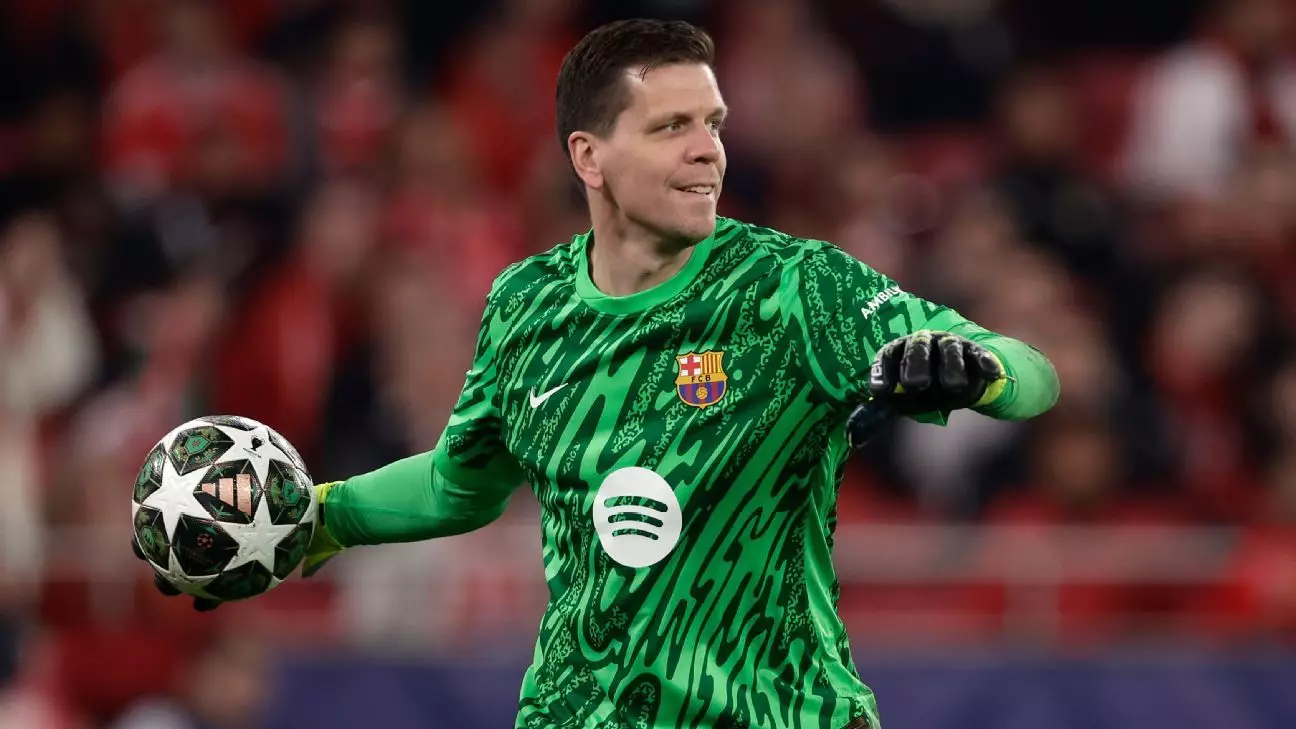Wojciech Szczesny, the 35-year-old goalkeeper for FC Barcelona, has made waves not just for his performance on the field but for his ability to tackle a controversial topic: smoking. This narrative goes beyond the pitch, flashing a spotlight on the struggles athletes face with personal vices. In a culture often shrouded in a façade of perfection, Szczesny’s courageous admission serves as a clarion call for authenticity in sports. He isn’t merely another player recounting the tenets of physical fitness; he’s a man willing to bare his soul, urging fans and aspiring young players not to repeat his mistakes.
The Burden of Honesty
During his interview with ESPN, Szczesny opened the floodgates on a discussion that many football players might shy away from. “I’ve lost the fight,” he confessed candidly regarding his smoking habit, presenting a refreshing take on the often-polished narratives that dominate sports media. By admitting defeat to a personal vice, Szczesny positions himself not just as an athlete but as someone who grapples with human challenges. His words are a reminder: it is acceptable to be flawed.
Yet, this admission also reveals the burdens athletes shoulder. The pressure to remain almost superhuman can be overwhelming. His call for young fans to “please do not follow me and don’t do it” is not just a plea; it’s a moral obligation he feels compelled to voice. For Szczesny, football isn’t merely a sport; it is intertwined with a moral compass he seeks to share, making his admission feel forthright, yet laden with responsibility.
The Dichotomy of Fame
Szczesny’s honesty poses a question: should athletes embody flawless ideals, or should they speak openly about their vulnerabilities? In a world where athletes are revered almost like deities, there exists an irony — the very pedestal that elevates them also confines them. These individuals are often expected to set benchmarks for excellence, but amidst the trophies and accolades, there lies humanity. The chanting of “Szczesny fumador” during games further complicates this picture; what should be a moment of celebration for a fan-favorite turns into an acknowledgment of a struggling identity.
The reality of Szczesny’s situation sheds light on a deeper phenomenon within sports culture. The encouragement of fans, albeit in jest, underscores how public perception can amplify struggles. Is it supportive banter, or does it exacerbate the issues athletes face? This blurred line necessitates dialogue about how we uphold our sporting icons and the expectations we place upon them.
A Reflection on Team Dynamics
Beyond his personal candidness, Szczesny’s role at Barcelona reveals the importance of team dynamics. Despite his modesty, claiming that his contributions have been “minimal,” the implications of a solid goalkeeper are profound, no matter how well the team performs. He has kept a remarkable 13 clean sheets, reinforcing the idea that individual prowess can still thrive amidst collective success. This paradox raises important insights about the balance of individual accomplishments within the larger context of teamwork.
In times of monumental success, like that of Barcelona’s current season, Szczesny’s statements embody the humility found in athletes who remain grounded despite their achievements. Rather than playing the hero, he attributes the team’s successes to a collective effort, showcasing a mindset critical in fostering a winning mentality on and off the pitch.
Navigating Personal and Professional Growth
As Szczesny prepares for decisive moments in La Liga and the Champions League, the intersection of personal and professional growth becomes increasingly relevant. His insights into the struggles of smoking reveal the dualities often faced by athletes: while they strive to excel professionally, they also wrestle with personal demons. His honesty is a stark reminder that the battle often rages on even when they wear their team colors.
Ultimately, Wojciech Szczesny transcends the role of a typical footballer, acting as an ambassador for transparency in an era where authenticity can be scarce. His call to action not only resonates with his young fans but also serves as an invaluable lesson in humility and honesty. In sports, as in life, it’s not just about how we play the game; it’s about the virtues we embody along the way.

